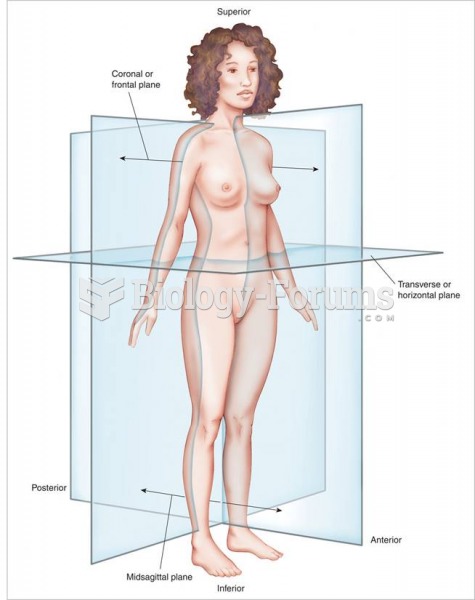|
|
|
Although the Roman numeral for the number 4 has always been taught to have been "IV," according to historians, the ancient Romans probably used "IIII" most of the time. This is partially backed up by the fact that early grandfather clocks displayed IIII for the number 4 instead of IV. Early clockmakers apparently thought that the IIII balanced out the VIII (used for the number 8) on the clock face and that it just looked better.
The training of an anesthesiologist typically requires four years of college, 4 years of medical school, 1 year of internship, and 3 years of residency.
In 1864, the first barbiturate (barbituric acid) was synthesized.
Between 1999 and 2012, American adults with high total cholesterol decreased from 18.3% to 12.9%
Aspirin is the most widely used drug in the world. It has even been recognized as such by the Guinness Book of World Records.







